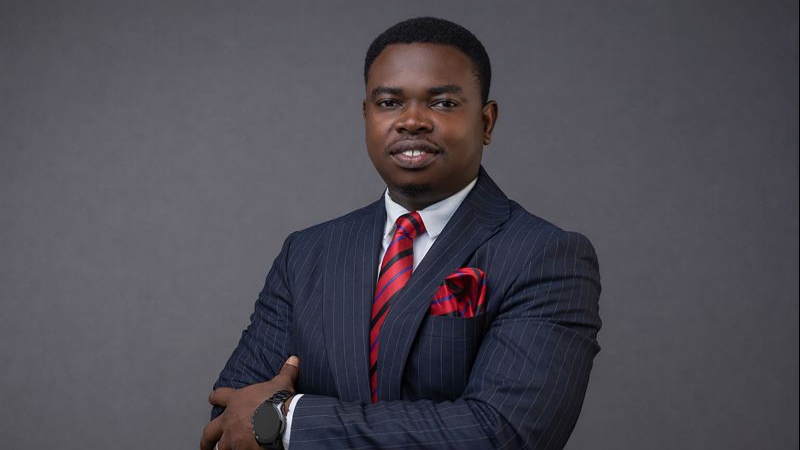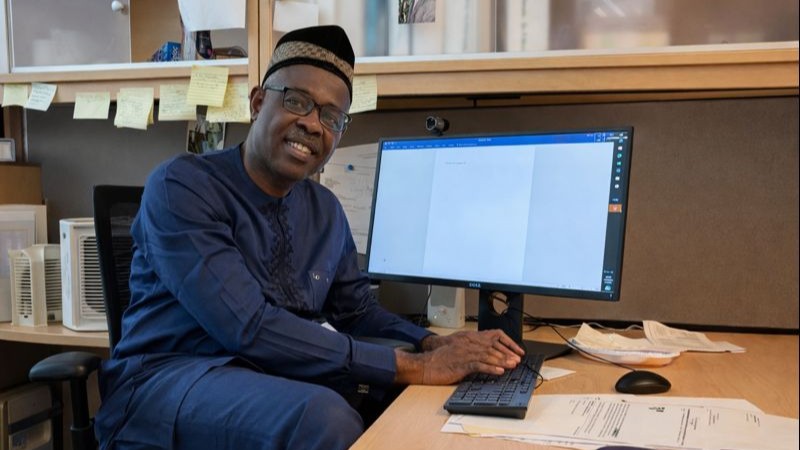In the run-up to the Nigeria Summit 2025, Elizabeth Kaijuka Okwenje, Uganda’s Assistant Commissioner for Renewable Energy at the Ministry of Energy and Mineral Development, speaks from her office in Kampala with International Editor Daniel Neilson about leapfrogging industrialisation, the urgent push for clean energy, and why energy security underpins Africa’s future prosperity.
When Elizabeth arrived at Oxford University as a young undergraduate student of Engineering Science, she was the only Black woman in her department. “I felt like I was representing the continent in everything I did,” she recalls. “It was a responsibility, but also a motivation. I wanted to prove that science could be applied to solve the challenges that mattered most to Africa.”
That sense of mission has never left her. Today, Elizabeth is an Assistant Commissioner at Uganda’s Ministry of Energy and Mineral Development, leading renewable energy projects and shaping policy in one of the world’s most resource-rich but energy-poor regions. Her career – from Oxford and Princeton to rural electrification schemes in Uganda – has put her in a unique position to talk about energising Africa’s future. She will be bringing her learnings to The Nigeria Summit 2025 on the panel, The Business of Energy, Infrastructure & Industrialisation: Powering Nigeria’s Next 65 Years, to be held at the Federal Palace Hotel on November 5.
“Energy security is central to all the other sectors: agriculture, water, industry, healthcare” she tells me in a recent conversation. “Before we can reach our ambitions of industrialisation, it must be addressed.”
As a student of Engineering Science at Oxford’s St Hugh’s College, Elizabeth navigated a broad curriculum covering every branch of engineering, from civil and structural to mechanical and electrical. “I liked the idea of using science to make something tangible,” she says. “In my first year, I literally made an FM radio and an AI robot that could walk in a straight line”. But it was her postgraduate work at Princeton University that changed the trajectory of her career.
“I joined the Princeton Environmental Institute as a research scholar, working on hydrogen fuel cells in 2002,” she explains. “It was futuristic at the time – we were planning 50 years ahead; they now power the hydrogen cars you see on the road today.”
However, returning to Uganda after years abroad, Elizabeth experienced a jolt. “I had been doing futuristic research, but at home, the challenge was rural electrification, literally just putting the lights on. Eighty per cent of the country had no access to electricity.”
She joined the Rural Electrification Agency under Uganda’s Ministry of Energy, working with development partners such as the World Bank and the European Union to design and implement projects. “We were building mini-grids, connecting off-grid communities, trying to find solutions that were affordable and sustainable,” she says.
Her work often brought her face-to-face with the contradictions of African energy policy. On the one hand, the country possesses immense natural resources, including hydro, solar, wind, and geothermal. On the other hand, the majority of the population still relies on biomass, mainly firewood and charcoal, for cooking. “That is the biggest environmental challenge to date,” she says bluntly. “Clean cooking has now become an important part of our agenda.”
A broader mandate
After a decade in rural electrification projects, Elizabeth rose into government itself, taking up her current role as Assistant Commissioner. “Now I’m more empowered to make a difference,” she says. “We’re setting the policies and targets for the country, guiding independent power producers, and creating the frameworks to bring in private finance. Public finance alone cannot cover the scale of what we need.”
The projects she oversees today range from solar and wind farms to floating solar installations on hydropower reservoirs. She is also spearheading Uganda’s push into green hydrogen. “We’re working with the Aga Khan Fund for Economic Development to build a plant that uses renewable power to electrolyse water, creating hydrogen and oxygen,” she explains. “That hydrogen can fuel vehicles or produce fertiliser. It’s a complete system that aligns energy, food, and industry.”
These innovations are not abstract ideas but practical steps. “Much of my work is implementation,” she stresses. “Literally putting the projects and plants on the ground. Mini-grids that power entire villages, floating solar panels on dams, and hydrogen pilot schemes. It’s about turning policy into reality.”
Leapfrogging industrialisation
As our conversation turns to technology, I ask Elizabeth whether Africa can skip certain stages of industrialisation, much as it did in finance, where mobile banking leapfrogged traditional banking systems.
“Anything decentralised that doesn’t require massive infrastructure has been very successful here. Look at mobile money: everyone uses it. Energy can follow the same path. We can design a system for today, not yesterday.”
“Agriculture is still the backbone of our economies,” she points out. “Food grows, people are not hungry, and the happiness index is high. But energy access will allow us to process, preserve, and add value locally.”
The next 65 years for Nigeria and Africa
It is this vision that Elizabeth will bring to Lagos in November. The panel she’ll be joining is the Business of Energy, Infrastructure & Industrialisation, and we’ll be asking how Nigeria and Africa can move beyond oil to a diversified and sustainable energy mix, and how infrastructure and industrial hubs can power the next 65 years of growth.
“The conversations in that room will matter,” she says firmly. “They will determine whether Nigeria can lead the continent in designing the appropriate frameworks, financing, and partnerships that serve not just the country, but the entire continent.”
With Nigeria marking 65 years of independence, the symbolism is clear. The summit is not about incremental change but about setting the trajectory for decades to come. “Energy is at the heart of that story,” Elizabeth insists. “Get it right, and everything else is unlocked.”
The Nigeria Summit 2025
On November 5, 2025, leaders from across Nigeria, Africa, and the global stage will gather at the Federal Palace Hotel, Lagos Island to chart the country’s future for the next 65 years.
The day-long programme opens with high-level panels on the business of energy, finance, technology, agriculture and food security. Delegates will explore how today’s decisions can drive sustainable infrastructure, digital transformation, resilient food systems and inclusive economic growth across the continent.
For details, please contact: [email protected]






